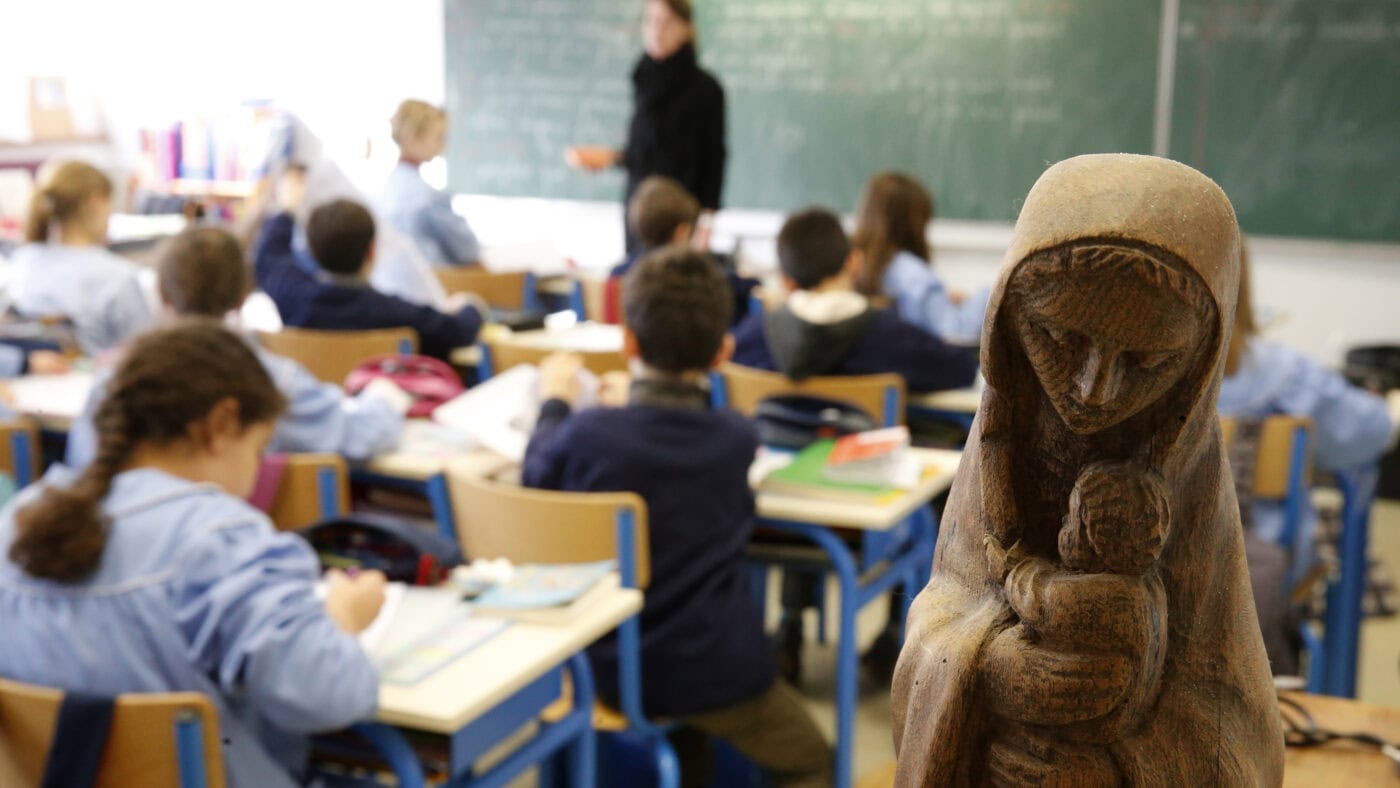Yesterday, the government announced a public consultation about state schools and religion. For nearly twenty years, state-backed free schools with a religious affiliation have been subject to a legal restriction that they may only select 50% of their intake by reference to faith. The government’s view is that this cap should go, and that such schools should be allowed to take account of religion in all their recruitment.
This has predictably caused uproar. Humanists UK said it would ‘disadvantage poorer families, non-religious families, and families of the ‘wrong’ religion’. The NSS said that it was ‘divisive and discriminatory’ and the Head Teachers’ Union said that there could be no ‘social or educational benefit’. Oddly enough, even ex-Archbishop of Canterbury Rowan Williams joined in the attacks, signing a letter alongside such luminaries as Philip Pullman.
The complaints are misguided and overblown. The government needs to press ahead with what is, after all, only a consultation, and should continue to promote its own proposal. Here’s why.
First, for all the complaints from the liberal establishment, the proposed change is not as big as it looks. It only applies to new-style free schools. Other maintained schools with a religious affiliation, whether Anglican, Catholic or Muslim, are not subject to that limit anyway: hence it is in some ways a tidying-up exercise. Furthermore, even if the government’s ideas took effect, in practice they would only apply to those free schools that were over-subscribed and where there was a demand for places from non-adherents. If, as with many Muslim schools, there is little or no demand from non-Muslims for places, the issue of religious choice never arises: if there is no shortage of places at all, then the delicate issue of choosing who gets them is an irrelevance.
Secondly, it is entirely non-coercive. Existing religious free schools would if they wished be able to continue to recruit 50% of their intake from outside the group as if nothing had happened. Some may well do this, perhaps feeling that they could do more good in the world by spreading their ethos to non-believers.
Third, there is a good chance that it would improve the education received by at least some children. Schools actively promoting a particular ethos, as the government points out, tend often to do well in league tables for exam performance and subsequent success. Admittedly, this does not have to be a religious ethos. The performance of schools like Michaela School in Brent, a feature of which is that it promotes an explicitly agnostic ethos and actually forbids open religious exercises, is witness to that. But if a school feels that a wholehearted commitment to a particular religious group will let it serve its pupils better than a mere licence to choose half of its intake on a faith basis, it may well be right, and there is every reason to let it try.
Furthermore, for all that is wrong with the English public education system, one of its strengths lies in its variety. State schools already vary very considerably, from the religious to the irreligious, the liberal to the strict, and the traditional to the new-fangled. This not only gives parents an element of choice: it also allows experimentation to feed decision-making, and encourages new ventures. (It is said, for example, that the Catholic hierarchy is particularly interested in setting up new free schools, but is unhappy at the present 50% rule.) So, adding another element to the mix, in this case, new free schools with a 100% religious atmosphere, can only be a good thing.
What is interesting is that the arguments against this scheme have something either of desperation or of a political agenda. The idea that allowing new free schools with a religious ethos will disadvantage the poor is curious. Unless the poor are somehow less religious than the middle class, one would have thought the opposite was true. Nor is allowing parents to choose state education in line with their religious convictions particularly divisive, whereas limiting that right to parents with money to pay for it looks distinctly so.
One suspects that the real objections to this proposal are simply that by encouraging more, and more varied, free schools it may take state education further out of the hands of the progressive bureaucracy that has taken over much of it, and which sees variety and decentralisation as a threat to its view of equality and diversity. The proper response is to say that individuality and the parental desire to see their children properly and rigorously educated are more important.
As for organisations like Humanists UK, here’s a mischievous thought. There is a long and honourable tradition of humanist scholarship. Instead of carping at religion, why not suggest that they make arrangements to set up their own free schools on humanist principles? Such schools might well add to the quality of state education on offer, and would certainly add to its variety. Now there is an intriguing idea to take away.
Click here to subscribe to our daily briefing – the best pieces from CapX and across the web.
CapX depends on the generosity of its readers. If you value what we do, please consider making a donation.


